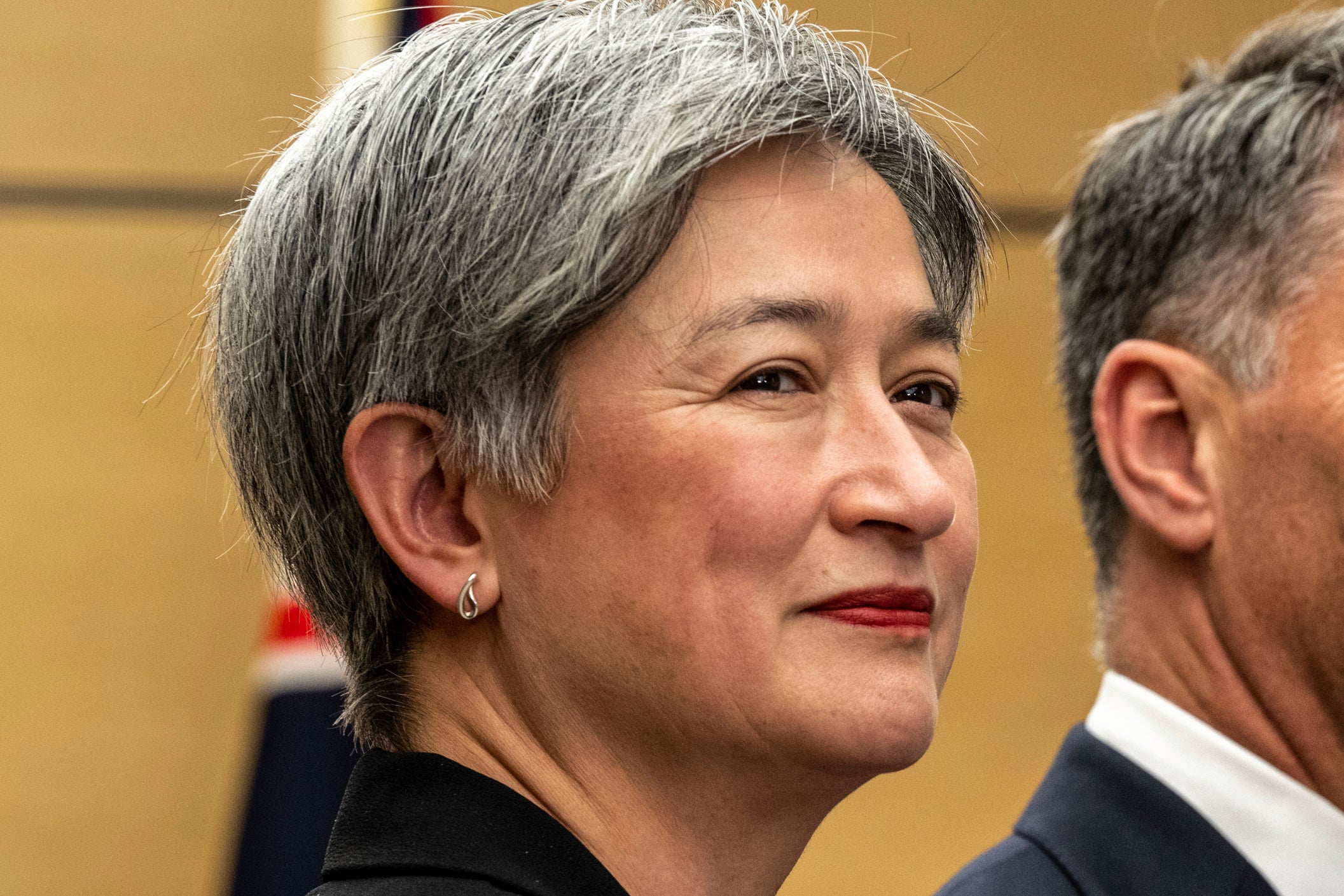Australian minister in China after long break in relations
Australia's foreign minister is in China for talks seeking to mend a long break in high-level ties that have prompted trade sanctions and political frictions

Australia’s foreign minister is in China for talks seeking to mend a long break in high-level ties that have prompted trade sanctions and political frictions.
On arriving in Beijing, Penny Wong thanked China for the invitation, which comes on the anniversary of 50 years of official diplomatic relations between the nations.
Wong said she looked forward to meetings “discussing many of the issues that are important to us.” She was due to meet with Chinese Foreign Minister Wang Yi later Wednesday.
Wong’s visit is the first by an Australian foreign minister to China in four years and is raising hopes that Australia will make progress on ending China's blocks on Australian commodity imports and freeing two Australian citizens detained in China.
Wong said she would continue to advocate for detained Australians, without giving details.
Wong’s trip furthers a tentative thaw in relations between the two nations since Australian Prime Minister Anthony Albanese won an election victory in May, replacing the more conservative Scott Morrison in the top role.
Albanese and Chinese President Xi Jinping met on the sidelines of the Group of 20 summit last month in Bali, the first such formal meeting between the leaders of the two nations in six years.
Relations between Australia and China have been poor since China imposed trade barriers and refused high-level exchanges in response to Australia enacting rules targeting foreign interference in its domestic politics and calling for an independent inquiry into the COVID-19 pandemic.
Albanese has also said he remained committed to building a fleet of submarines powered by U.S. nuclear technology despite the French president describing the plan as a “confrontation with China.”
As a treaty partner with the U.S., Australia is also viewed by China as part of a scheme to prevent it asserting diplomatic and military supremacy over the South China Sea and most of East Asia.
That has prompted many nations, including Australia, to seek a balance between their crucial economic ties with China and their long-standing security relations with the U.S.
Bookmark popover
Removed from bookmarks